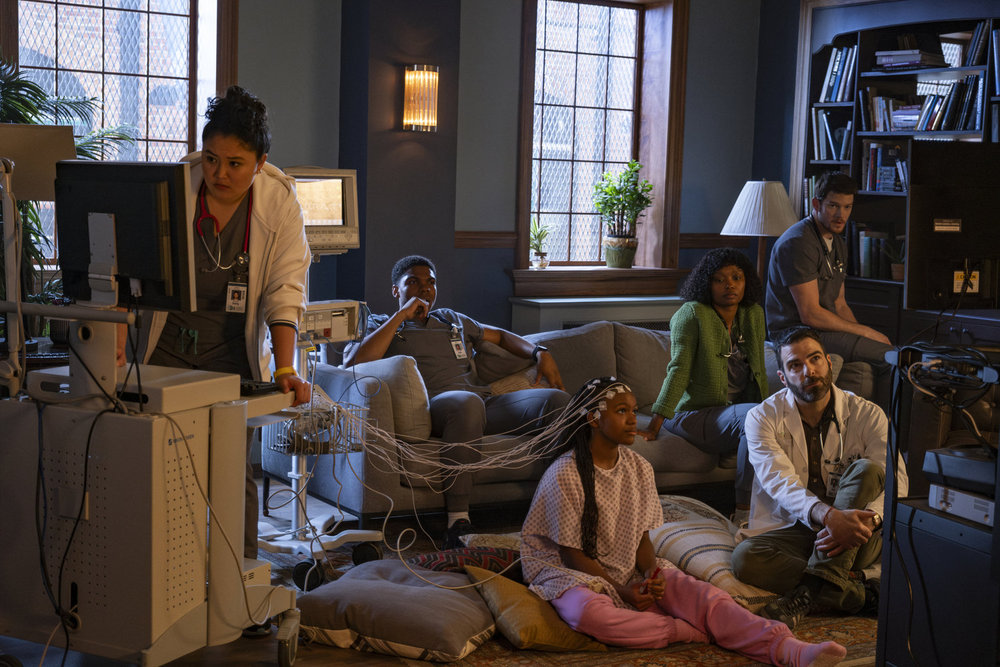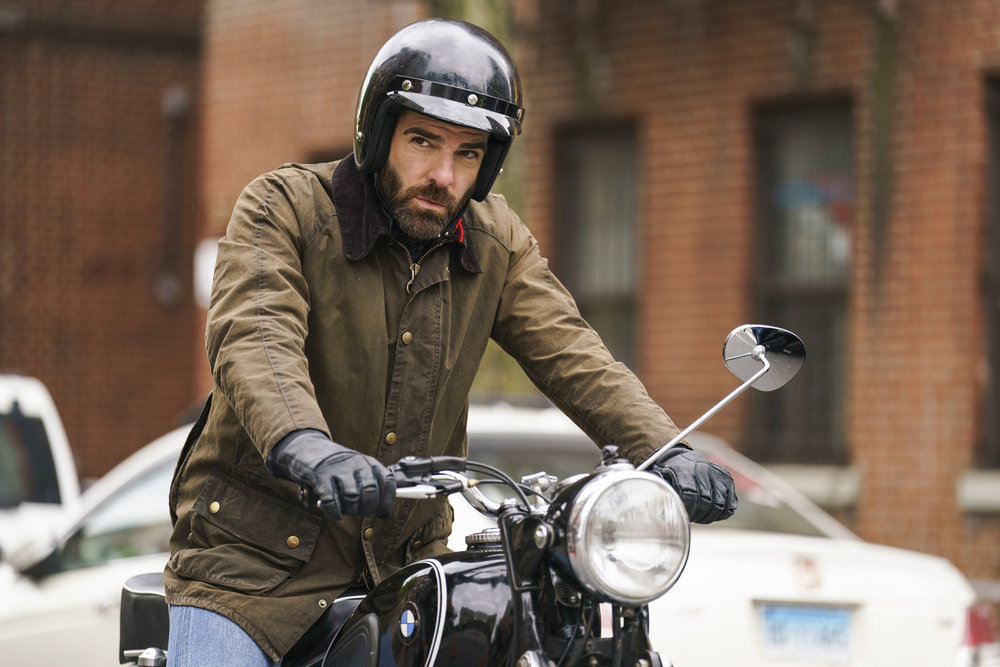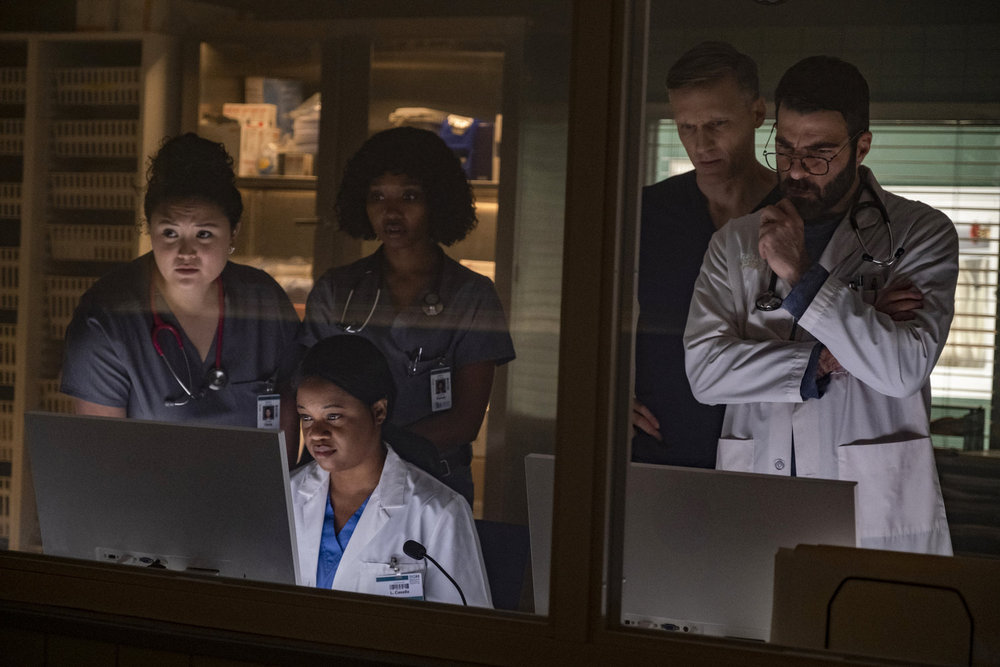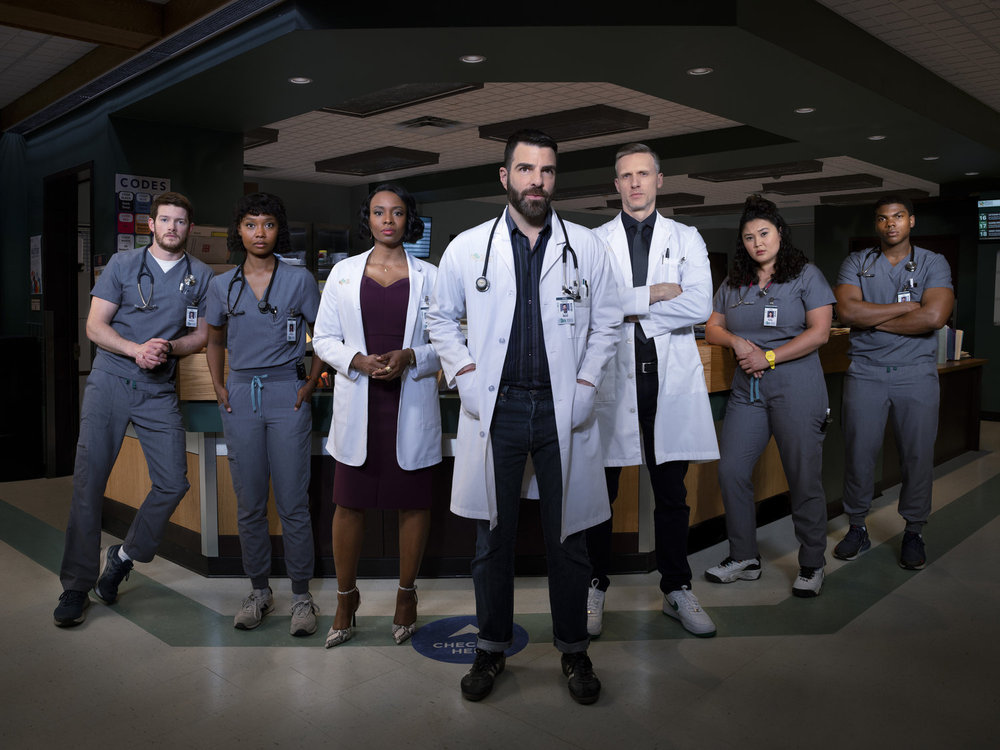In Brilliant Minds, the out actor takes landmark role in NBC medical series
By Frank Rizzo
In NBC’s new medical series Brilliant Minds, (Mondays at 10 PM ET), Zachary Quinto plays an idiosyncratic neurologist inspired by Dr. Oliver Sacks, best known for his writings on neurological disorders in the books The Man Who Mistook His Wife for a Hat, An Anthropologist on Mars, and Awakenings.
The series is significant as it’s the first time an out actor is playing a leading role of a gay doctor in a network medical series.
“I was a little ambivalent coming back to a network environment,” said Quinto in an appearance I attended this fall at an event for LGBTQ+ journalists in Los Angeles.
“But I read the script and felt so drawn to the character.”

Quinto first became widely known in 2006 as the bisexual best friend of Tori Spelling on her VH1 series So NoTORIous. Major TV roles also included the villainous Sylar in the science-fiction drama series Heroes, as Charlie Manx in the AMC series NOS4A2, and as Dr. Oliver Thredson in American Horror Story: Asylum, for which he received an Emmy nomination.
“It’s an honor for me to play a character like this in such a mainstream way at a time when LGBTQ+ issues are really at the forefront of our political and social discourse,” said Quinto. “It’s incredibly important that representation remain stronger than ever right now… and that was a huge part of what drew me to the character—but only one part of many.”
Quinto said he knew “somewhat” about the London-born Sacks who practiced medicine in the U.S., but once cast Quinto read all the neurologist’s books and memoirs, which allowed him to go deeper into the character of the series’ Dr. Oliver Wolf. (Wolf was Sacks’ middle name.)
“I love the idea of playing this character inspired by a real person but not rooted in all of the trappings of that person’s actual life,” he said.
Though Sacks practiced medicine and wrote from the 1960s to his death in 2015 at the age of 82, the series is set in the present. “In a way,” says Quinto, “it’s sort of imagining the way his life could have been under different circumstances.”
Sacks was deeply influenced by the times when he came of age and the social restrictions on people living fully who they were, said Quinto. “[Sacks] didn’t come out until very much later in life, and for 35 years he was celibate. It wasn’t until very late in his life that he opened up to being gay and opened up to a loving relationship. Being gay is an essential part of who he is but it’s a complicated part of who he is.”
An active supporter of gay rights and organizations, including The Trevor Project early in his career, Quinto, 47, publicly came out as gay in 2011.

Quinto’s career also included many film roles, notably as Spock in 2009’s Star Trek its sequels. “On Broadway he starred in The Glass Menagerie and the 2020 revival of The Boys in the Band. His next Broadway role is in this season’s The Cult of Love.
What makes Brilliant Minds distinct, Quinto said, are the neurological and psychological cases, many inspired by Sacks’ own case studies.
“We are part of an incredible evolving history of medical shows, but a lot of them deal with cases that are easily quantifiable. Someone comes in with a gunshot wound or some other kind of injury or illness that a resolution will be ultimately healing. One of the fascinating aspects for me about our show is that we’re dealing with neurological disorders and mental health issues, and often these patients are never going to return to the life that they lived before.
He asked, “how can we still find integrity and joy in life even in the face of seemingly catastrophic adversities? I think that ultimately there is a message of hope in our show, and I hope that that’s what people take away.”
LGBTQ+ Representation on TV
Quinto is supported in these goals by the series creator, writer and executive producer, Michael Grassi.

“One of the reasons I wanted to create this show and this character was to have the opportunity have a gay lead in the center of a big American network medical drama,” said Grassi, whose writing and producing credits include such shows as Schitt’s Creek, Pretty Little Liars: Originals, and Riverdale
“But being gay is only part of [Dr. Wolf’s] life,” said Grassi, “He has many things that define him: He’s a doctor, a mentor, a friend, and a son.”
It was also important for Grassi to cast an out actor to play the leading character who is based on a man who was gay.
“We’ve had a lot of LGBTQ+ stories told by non-LGBTQ+ people or actors, and that’s 100 percent okay. But it also felt important for us to have a gay actor at the center. Zachary was the first person we thought of for the role. Zachary brings so much more to the role than I could have ever imagined; so much depth, humor and emotional resonance.”
Being a gay man allows Dr. Wolf to identify with his patients, many of whom had been written off by other doctors, said Grassi.
“As a gay person, you can often feel like you are ‘other,’ like you are on the outside, like you are invisible. I think Dr. Wolf growing up as a person with prosopagnosia (commonly known as ‘face blindness’) and also being gay; I think he knows what it’s like to be different and the outsider. While he can’t see their faces, he can really see who they are. I think empathy is really his superpower in a lot of ways. It’s what Oliver Sacks brought to his patients and where we want our Dr. Wolf to follow in those footsteps.”
Because Grassi was producer of the sexy, teen-centric series Riverdale, might there be those kind of intimate, heated scenes in Brilliant Minds?
“What I’ll say is there’s definitely sparks that fly this season, but I don’t want to spoil anything,” he said. “This series is more about relationships and love so I can’t promise anything as steamy as Riverdale.”
As he considers his own life as a gay man, Grassi says the show has given him much to reflect on.
“I often think about when I was growing up and the only gay content that I had access to in my household was a laser-disc copy of the movie Philadelphia. I would watch that movie and sort of projected, well, that is my fate, and that is going to be my life and it was sad for me. Then came Will and Grace I was so grateful because I could sort of see myself in that show, and it made me feel that it was okay to be who I am. I don’t think I’d be where I am today if Will and Grace didn’t exist.” So, to be making this big NBC medical show with a gay character at the center of it feels especially exciting and—fingers crossed—just as iconic.”









More Stories
Fall Arts Preview: Emus, Foxes and Eric Clapton, Too
How Can They Keep from Singing?
“My anger problems became a success” – Artist Diane DiMassa on the Collection of her Classic Underground Comic